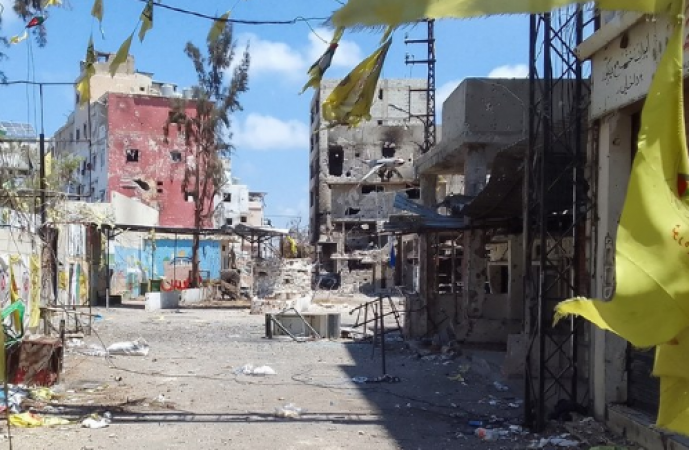
NY City: Armed clashes that took place at Ein El-Hilweh, a camp for Palestinian refugees in southern Lebanon, from July 30 to August 3, as well as their aftermath, have once again brought attention to the precarious conditions in which camp residents are living.
On Thursday, Dorothy Klaus, the director of the UN Relief and Works Agency for Palestine Refugees in the Near East, called for an immediate and ongoing aid effort while describing the effects of the violence on the people in the camps as "profound."
She claimed that during the most recent fighting, 400 houses were destroyed and hundreds of families were forced to flee either within the camp or to nearby areas. Vital camp infrastructure, such as a UNRWA school complex that accommodates more than 3,000 children, was also damaged by the fighting. She continued by saying that the agency was still having trouble getting to certain areas of the camp.
Also Read: In a West Bank raid, Israeli forces kill one Palestinian and injure eight others.
The largest of the 12 Palestinian refugee camps established in Lebanon in 1948 following the creation of Israel is Ein El-Hilweh. The Lebanese army has largely refrained from entering the camps since a 1969 accord between the government and the Palestine Liberation Organisation.
Some Lebanese officials are calling for the military to take control of the camps in the wake of recent clashes between rival armed groups in Ein El-Hilweh, which left at least 11 people dead and dozens more injured.
Around 50,000 people call Ein El-Hilweh home, but over the years there have been many violent incidents there, including clashes between factions and between Palestinian groups and Lebanese forces.
According to Klaus, UNRWA has been successful in restoring essential services to "about 50% of the camp" since the most recent violence subsided. We've started clearing the area of debris and cleaning up after it.
However, she gave a horrifying account of the "trauma and distress" experienced by the locals, including "children having been traumatised, women's hair having been turned white during the hostilities."
Communities of Palestinian refugees have been traumatised for decades as a result of displacement and conflict, Klaus continued. She claimed that the frequent violent clashes and property destruction suffered by the inhabitants of many refugee camps, including Ain El-Helweh, had left deep psychological scars.
Klaus attributed the alarmingly high rates of non-communicable diseases to traumatic experiences and the high levels of stress experienced by refugees.
As she emphasised the negative effects hostilities in camps can have on nearby locations, Klaus said that relationships between camp residents and communities in the surrounding areas add to the complexity of the situation. She added that the recent violence, for instance, cost the city of Saida money because it forced closures during the busiest time of year for travel: the summer.
This occurs in a nation that, according to the International Monetary Fund, is four years into a devastating economic crisis during which the country's currency has lost about 98 percent of its value, the gross domestic product has decreased by 40 percent, inflation is at triple digits, and approximately two-thirds of the central bank's foreign-currency reserves have been depleted. Because of this, a sizable portion of the populace is now living in poverty.
The IMF warned last month that a continued lack of corrective action by authorities could lead the country "down an unpredictable road," saying that the financial crisis has been exacerbated by vested interests among the country's authorities, who have resisted calls for the implementation of critical economic and political reforms.
Also Read: Afghans make up the majority of English Channel migrants as the 100,000 mark is reached
According to Klaus, the relationship between Palestinian refugees and their host nation is already complicated by the fact that their access to employment opportunities, property ownership rights, and basic services is restricted.
She claimed that the economic crisis has forced the refugees, who were already struggling with poverty, into even more precarious situations, with about 80% of them now living in poverty.
According to Klaus, "poverty has already reached a level that is more than twice as high as it was in the Lebanese population before the economic crisis."
Also Read: Identifying Victims of Greece Migrant Shipwreck a Painfully Slow Process
So, with the impact of the crisis on employment being limited to sectors that do not offer fixed employment, the resilience levels in the Palestinian population in Lebanon have been even lower. Additionally, it is extremely rare for Palestinians in Lebanon to have a regular job or access to any type of social security.
The difficulty is reflected in their income and ability to support themselves, which means that roughly 50% of men over the age of 16 are currently unemployed and the remaining have intermittent unemployment